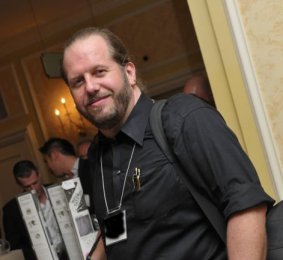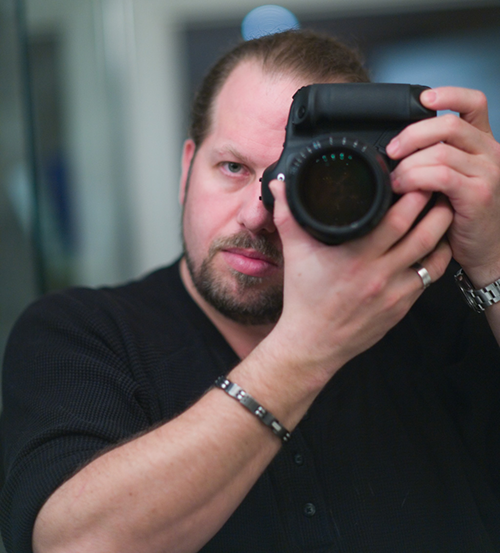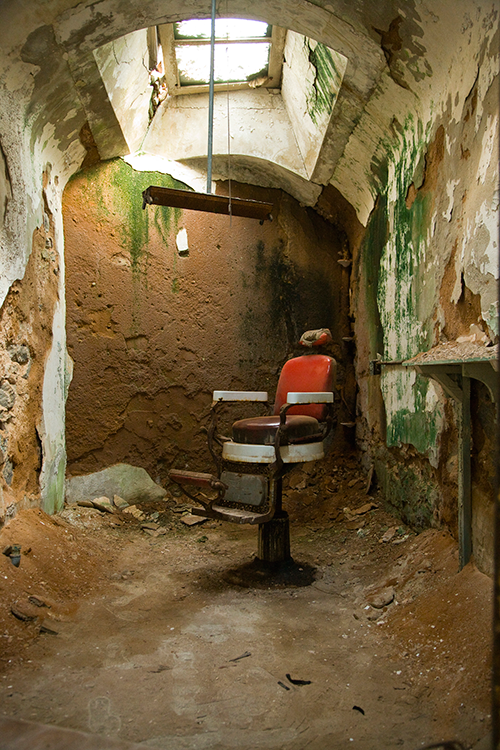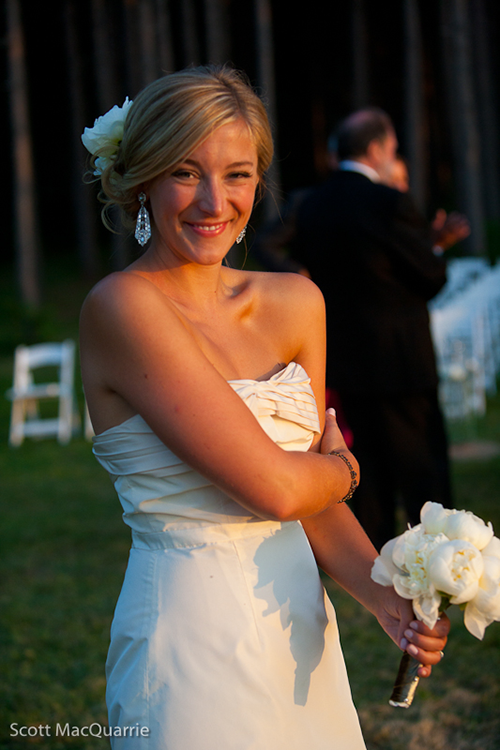
Scott MacQuarrie is an award-wining photojournalist and shoots events, editorial stuff, stock photos and commercial work for clients worldwide. He has been awarded CPP (Certified Professional Photographer) from the PPA. We got a chance to interview Scott over the weekend. In this interview, Scott speaks about his career as a photographer and shares his thoughts on photography as an art, science and also as a profession / business.
Tell us a little bit about yourself?
Hmmm, well as is often the case with me, the easy question has a complicated answer.I am 46 years old, based in Oakville, Ontario, Canada. I primarily shoot Editorial, Stock and commercial photography. I don’t really shoot portrait or weddings, but I may expand my business in that direction. I shot a wedding for the first time last year and it was much more enjoyable than I expected; it felt just like event photography.
I am a member of a variety of organizations. I am a member of the PPA (Professional Photographers of America), the PPOC (Professional Photographers of Canada), ASMP (American Society of Media Photographers), EP (Editorial Photographers), EP Canada, and EP UK. I am also a member of the Canadian Association of Journalists.
I was awarded a CPP (Certified Professional Photographer) from the PPA in 2008 and made a General Member of the ASMP in 2010. Several of my photographs have won national awards in Canada, but I have not entered a lot of competitions. I plan on entering some this year, as a part of an ongoing marketing strategy.
How long have you been a photographer?
As a professional, about 6 years. I’ve been involved with photography on and off since being a teenager, but strangely didn’t get serious about photography until the rise of digital cameras. I got involved with journalism and started writing articles for magazines, which is how I joined the Canadian Association of Journalists. I had a client asking me to support the articles with photos and I found I preferred to take pictures over writing articles. I still occasionally write article, but most of my writing is just on my blog now.

Did you go to school to study photography? Where?
I’m self taught, although I constantly attend seminars, workshops, and other training opportunities. I also have a large collection of books and training DVDs from a variety of photographers. One of the things I love about photography is that the learning process never ends and there are always several different ways of doing anything in photography.One of the reasons I consider professional membership so important to a professional photographer is the expanded training opportunities. It’s important to refine and expand your skill sets. It’s critical to understand the best practices in this business.
How would you describe your style?
Well, I shoot in a photo-journalistic style. Although I do take up post-production work, I try to keep my work in line with experience. In effect, to remain “truthful” and accurate to what happened. I know this opens up a whole debate about truth in photography, but I think it starts with the intent.I feel that at some point with post-production, the photograph ceases to be a photograph. It becomes a photo illustration. Although it’s still art and it’s still impressive and worthwhile, it’s no longer a photograph. It’s a photo illustration or at least an art of another form. I am impressed with a lot of the photo illustration work I see, but my own work doesn’t go there. I have a running argument with photo competitions that do not separate the photo illustrations from the photographs. They are different skill sets and deserve to be judged separately.
What type of cameras/lens do you shoot with?
I am a Canon shooter for my professional work. I shoot with full frame Canon bodies, 5D and 1DS, with a variety of lens from 14mm to 300mm. I think I have too many lenses, but have several more to buy. A mental conflict most photographers can understand.
I also have a collection of compact cameras and the ever present iPhone 4. I think Chase Jarvis is right and the best camera is the one that’s with you. I have a camera with me at all times.
If you had to choose one lens/and a camera which one would it be and why?
Hmmm, not sure if this is a reasonable question. I can shoot with any camera or any lens, as I create the photograph, not the camera. This is like asking if I would be prepared to give up some types of photography or compositions options. If I only have my iPhone with me, I shoot with that. In fact, I often just compose photographs in my head when I am traveling somewhere. In other words, I don’t need the camera to create photographs, its needed just to show them to other people.
“I can shoot with any camera or any lens, as I create the photograph, not the camera. This is like asking if I would be prepared to give up some types of photography or compositions options. If I only have my iPhone with me, I shoot with that. In fact, I often just compose photographs in my head when I am traveling somewhere. In other words, I don’t need the camera to create photographs, its needed just to show them to other people.”
Although I like Canon and I like that they make all of their own equipment (unlike some manufacturers). I’m always exploring new ways of capturing work. In fact, I’ve been considering Leica rangefinders and medium format for some time. If the stars and finances align, I may explore working with them as well.I think we, as photographers, fall into a trap regarding equipment. There are so many options out there and so much new technology out there that we get seduced and convinced that the latest camera, lens, or lighting will somehow transform our work. It’s fueled by the manufacturers and marketing, but it’s a false road. Sure, equipment can support further creative options and it’s a necessary part of the business, but it’s the photograph in your head that matters. If you can’t see photographically and compose photographically, it doesn’t matter what equipment you use. In the end, it’s your vision that matters and all the rest is just stuff to help you share it.
What is your tool of choice when it comes to post-processing (and library/catalog management)? Any favorite plugins?
Although I have Photoshop and pay the Photoshop upgrade tax when it’s due, it is no longer as critical to my work as Lightroom. I use Abode Lightroom for over 90% of my post production work and find myself using Photoshop less and less.I am at the point where I could probably function without Photoshop, but not without Lightroom. I have been a Lightroom user since version 1.1 and it’s now critical to my business. My laptop is setup to take over if my desktop fails, both of which have Lightroom installed and ready to go. Having Lightroom is almost as critical as having a camera.
Can you present one/two favorite images of yours? What do you like about them? (Share the story behind them?)
Well, my favorite image is the one I am about to take, so it’s hard to share that. In fact, I think it’s my job to try. Nonetheless, I have a couple of them which I like.First, is the Barber shot, which was just accepted into the PPOC National Salon (A national contest for PPOC members). This was shot in the Eastern State Penitentiary, which is now a historical site. This is an impressive and forbidding building that was once one of the toughest prisons in the country until it closed in the 70s. I loved shooting there and have sold work from that shoot for everything from advertising to the newsletter of the AARP.

The second is from a wedding I shot last year. I planned where I wanted to shoot the bride after the ceremony in the hopes of capturing some great light outdoors. I managed at the end of the shoot to pull off Rembrandt lighting with just available light. There is no flash or reflectors in this shot at all, just myself, the bride, my camera, and sunlight. This shot has convinced me to explore more portrait and wedding photography.

I’ve always avoided wedding photography, but also tried to follow the advice of shooting what you are not comfortable shooting. In this case, it’s taking my work down a whole new area.
Who’s your idol?
I have no idols really, but I respect the work of quite a few photographers. I’m impressed with Magnum photographers in general, but Robert Capa and Henri Cartier-Bresson stand out. Chase Jarvis, Micheal Grecco, Joe McNally, Steve McCurry, and many others have all influenced me. I list Chase Jarvis and Micheal Grecco first because each of them devoted time to personally discuss some photography issues with me and passed along the belief in sharing the photographic knowledge as much as possible.
I think I mentioned this earlier, but one of the most important values of professional membership is being able to attend conferences with the opportunity to meet and discuss photography with some of the best shooters in the world. I’ve been really lucky in that. Some of these people have devoted the time to share their knowledge with me. I’ve also reached that point with my work that people are asking for my advice sometimes, which creates an opportunity for me to give back. I’m really honored when people ask for my advice or my opinion. It’s not an ego thing, but a case to repay the debt I owe to people who answered my questions in the past. I treat every question as a compliment and an honor.
How important is a website for your business?
Critical. It is the most visible form of my business and I don’t think a professional photographer can operate without one today. I know many shooters who are giving up their dedicated studios, but none who would consider giving up their website. The internet has created a tremendous opportunity to reach your clients and potential clients directly.
I have been using my website in the past as an offshoot or to supplement my portfolio, but now I am in the process of exploring the opportunities for selling directly to clients from there. I have begun to consider my website as my store front, my communication medium, and my home base on the Internet.I also have an extensive presence on social networking sites, such as Facebook, LinkedIn, ModelMeyham and others. I think these are also important, both to maintain contacts with other photographers and to get feedback on your own work. I shot a picture last night while walking the dog and had feedback on it before I got home. Enabling that kind of communication is magical.
I think that Internet has changed photography as much as digital photography – and it’s not done yet.
What else do you enjoy in life other than photography?
Well, I am an avid motorcyclist with a preference for long trips and I love to travel in general. I have gone through several nomadic periods in my life and still enjoy seeing the world. I just love visiting historical sites, museums and art galleries. I am fascinated by technology in general, which is probably why the rise of digital photography triggered so much in me. I really feel photography has become both an art and a science, where we can capture memories and transmit emotions.It is truly a great and challenging time to be a photographer.
How can our readers contact you in case of queries?
Well, my email address is scott@zwcx.com and my website is www.zwcx.com. I’m also on Facebook, LinkedIn and a variety of other social networks. I love hearing from people and have an almost infinite capacity for email. I also love getting honest feedback on my work.
Thanks so much for taking the time for this interview.
Thanks for asking me.

